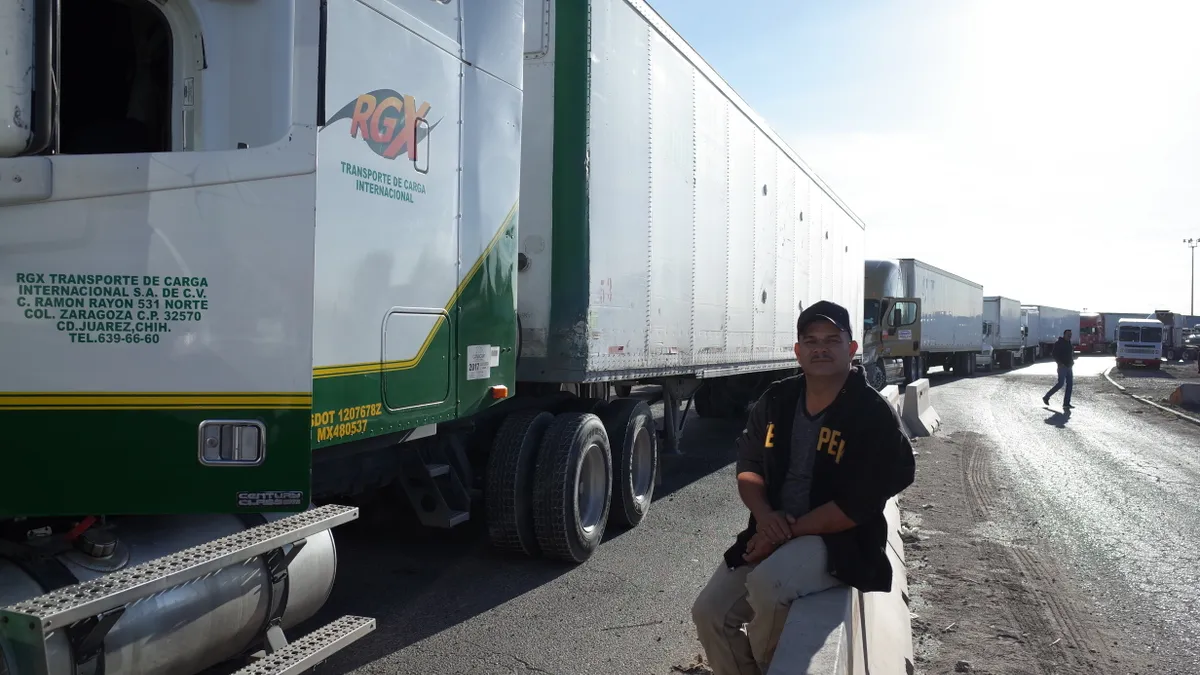Dive Brief:
- Mexico is considering placing tariffs on U.S. imports in retaliation for the slowdown at the U.S. border, Mexico News Daily reported.
- Truck crossings at the U.S.-Mexico border have slowed to a crawl over the last month after roughly 750 Customs and Border Protection (CBP) agents were reassigned to handle incoming migrants instead of processing incoming goods, leaving official points of entry (POEs) drastically understaffed.
- Mexico's foreign trade undersecretary, Luz María de la Mora, is confident tariffs will ultimately not be necessary because U.S. Secretary of Commerce Wilbur Ross committed to Economy Secretary Graciela Márquez Colín that the U.S. would send more customs officials to the border, Mexico News Daily reported.
Dive Insight:
Mexico is already expected to issue a new list of retaliatory tariffs in the coming weeks in reaction to the Trump administration tariffs on Mexican steel — the same tariffs that have caused Sen. Chuck Grassley to issue an ultimatum holding up a vote on the United States Mexico Canada agreement (USMCA) until the tariffs are dropped. Any further animus between the U.S. and Mexico can only serve to further delay or endanger passage of the deal.
Mexico is the United States' second-largest export market with exports totaling nearly $265 billion in 2018. Top export categories were machinery, mineral fuels, vehicles and plastics, but agricultural exports like corn, soy and dairy are also significant. There's no predicting right now what sector of the U.S. economy these potential tariffs would hit, but industrial, automotive or agricultural would be sound guesses.
According to Jon Barela, CEO of the Borderplex Alliance, $1 million in goods is traded between the U.S. and Mexico every minute, so the economic toll on border communities is severe.
On April 4, the wait time for trucks crossing into the U.S. from Mexico was five hours, and CBP staff reassignments were beginning to affect small businesses along the border. Barela testified earlier this week to the House Subcommittee on Border Security he has heard about 12- to 24-hour wait times. Local media reports some see sections of the border as effectively closed.
Businesses are operating at 20-50% capacity, Barela said, adding, "One employer is furloughing hundreds of employees and reducing their hours," in his written testimony.
Sheriff Mark D. Napier of Pima County, Arizona, in his prepared remarks submitted to the committee, defended Trump's characterization of the situation at the border as a "crisis," but also said ports of entry (POEs) need to be staffed up.
"Commerce with Mexico through the POEs is vital to Border States and pumps billions into our economy. Allowing Mexican citizens the ability to cross into the United States to engage in legitimate commerce is also vital to the economy of border regions. The POEs need better staffing and technology to support the efficient flow of legitimate transnational commerce while having the ability to detect and interdict illegitimate/criminal transnational activity," he wrote in his prepared testimony.
On Wednesday, the Trump administration requested an additional $4.5 billion in emergency funding, the majority of which would be allocated to caring for unaccompanied minor children crossing the border.














